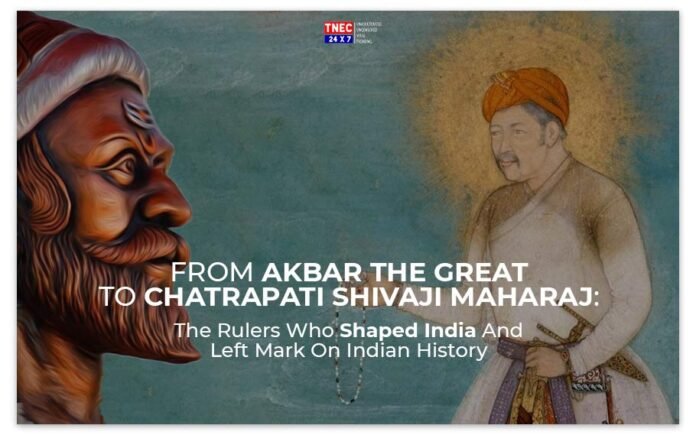India, a vibrant and beautiful country has a history of rulers who molded it into the shape it is today.
India has witnessed the ebb and flow of empire-building. Because of its strategic location at the crossroads of east and west, it has been targeted by different invaders, including the Mongols of Genghis Khan and Timur, the Persian Achaemenids of Cyrus the Great, and even the Macedonian warrior Alexander the Great.
India is the world’s second-most populous country and the world’s most populous democracy. One can only fathom the apparatus required for such a country’s proper government. The country has a long and illustrious past, much of which is enshrined in its various empires.
There have been many kings that have contributed to the development of this country and have had a significant impact on the world as it is today, but only a few of these rulers have left an indelible stamp on history.
Chandragupta Maurya – India
Maurya is credited with uniting minor autonomous states in India to form a vast united empire under one administration, making him one of India’s most influential kings.
Chandragupta Maurya founded the Maurya Empire, which stretched across Kashmir in the north to Deccan Plateau in the south and Afghanistan and Balochistan in the west to Bengal and Assam in the east. He seized the Macedonian territories and conquered the eastern territories of Alexander’s general Seleucus making his territory even larger.
Chandragupta Maurya was born in Bihar in the year 340 BC and was mentored by Chanaka, a famous Brahmin economist and political scientist.
As previously stated, Chandragupta Maurya conquered the majority of the Indian subcontinent, establishing one of India’s largest empires. For this achievement, he is well-known and respected.
After abandoning his kingdom and converting to Jainism, his son Bindusara succeeded him. Maurya traveled to Shravanabelagola, a well-known religious location in south India, where he fasted and meditated until his death.
Emperor Ashoka
Ashok the Great ruled over a vast empire that stretched from Afghanistan to Burma and from Kashmir to Tamil Nadu. Pataliputra was his capital. In India’s history, Ashoka is regarded as the most powerful ruler.
Ashoka was the third king of the Maurya dynasty, and he was known as Chand Ashoka because he was a stern ruler in his early days. However, after witnessing the deaths of millions of people in the Kalinga war, he changed his mind and abandoned his expansionist quest.
Emperor Ashoka made a significant contribution to the spread of Buddhism throughout the world. The Ashoka Pillar is the source of India’s national symbol and the flag’s wheel.
Akbar-The Great
Emperor Akbar was a Mughal emperor and one of India’s greatest emperors. Akbar was a Muslim who constructed a massive empire that spanned most of the Indian subcontinent and was one of the most powerful kings of the Mughal Dynasty.
The adoption of measures that fostered a tranquil atmosphere, reorganization of taxation systems, division of his army, and formation of foreign connections with the West enriched Emperor Akbar’s reign.
Emperor Akbar established the ‘Din-i-Ilahi’ cult, which merged Islam, Hinduism, Jainism, Christianity, and Zoroastrianism! After constructing the Ibadat Khana, or place of devotion, at Fatehpur Sikri and countless architectural masterpieces, he died.
Chhatrapati Shivaji Maharaj
In the year 1630, King Shivaji was born into a family of Maratha administrators. His father served in the army of the Bijapur Sultanate and Jijabai as a Maratha general. His mother, who was a devout Hindu, raised him to study the teachings of Hindu and Sufi saints.
At the age of 16, King Shivaji made his first conquest, attacking and capturing Torna Fort. He went on to take three more forts in a row. Shivaji was a man who respected all religions and had no prejudices against other castes or communities.
Prithviraj Chauhan
King Prithviraj Chauhan, alias Rai Pithora, was a Rajput king who ruled the kingdom of Delhi as one of the last independent Hindu kings.
Prithviraj was a remarkable child, both brave and intellectual. Even as a toddler, his military prowess shined through: he could hit targets simply by listening to their sounds!
He, like most Indian monarchs, was eager to expand his domains. He is recognized for some famous battles, like those with Shahabuddin Muhammad Ghori. Prithviraj Chauhan’s reign came to an end with the Afghan invasion; he was captured and executed by Muhammad Ghori after his defeat at the Second Battle of Tarain.












